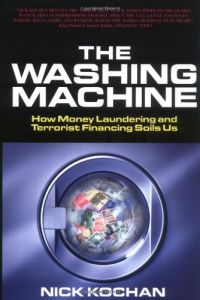Join getAbstract to access the summary!

Join getAbstract to access the summary!
Nick Kochan
The Washing Machine
How Money Laundering and Terrorist Financing Soils Us
Thomson South-Western, 2005
What's inside?
Whether they sell guns, gems or drugs, money laundering`s criminals have a dangerous common goal: profits for terrorism.
Recommendation
With huge swaths of the world’s economy taking place in the black market, money laundering has turned into an intractable problem with wide-ranging consequences. British journalist Nick Kochan offers an intriguing study of this shadowy world. He argues that laundering was an overlooked problem in the U.S. before the Sept. 11, 2001, attacks pushed the issue to the fore. Indeed, he says, Americans were oblivious to the effects of dirty money. Kochan details the sordid sagas of Russian gangsters, Colombian kingpins and corrupt Mexican bankers. At times, his broad approach hinders his prose, and his examples aren’t always as compelling as they should be. Still, getAbstract recommends this eye-opening study to anyone who deals with the global movement of money.
Summary
About the Author
Nick Kochan is a writer, journalist and researcher who covers bank fraud and white-collar crime. He writes for a number of publications, including Financial Times and The Economist.

















Comment on this summary